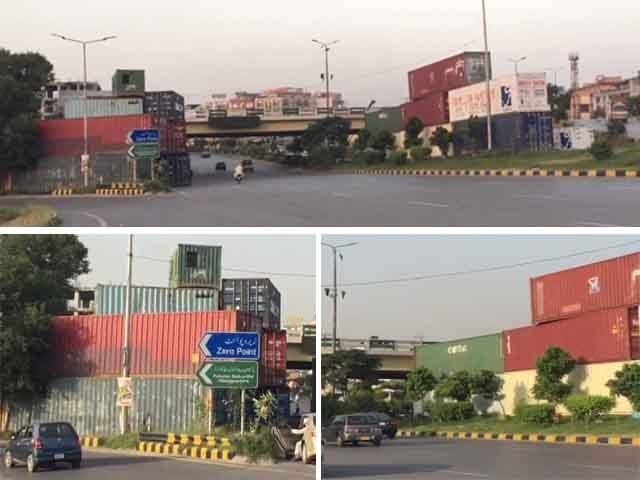The Islamabad High Court (IHC) expressed concern on Wednesday over the shutdown of businesses in the capital during PTI’s “final call” protest, criticizing the actions of both the government and the protesting party as “wrong.”
On November 13, PTI Chairman Imran Khan issued a call for nationwide protests on November 24, demanding the restoration of the party’s electoral mandate, the release of detained members, and the reversal of the 26th Amendment, which he argued had strengthened a “dictatorial regime.”
The IHC had previously ruled that PTI’s planned protest was unlawful and instructed the federal government to take necessary steps to maintain law and order in Islamabad without disrupting public life, especially as the Belarusian president’s visit coincided with the protest. During the hearing, IHC Chief Justice Aamer Farooq questioned the repeated disruptions caused by protests, asking, “What alternative solutions can be implemented instead of shutting down the city with containers?”
Today, Justice Farooq resumed proceedings on a petition filed by Islamabad’s traders, who raised concerns over potential disruptions to their businesses. Islamabad Deputy Superintendent of Police (DSP) Legal Sajid Cheema, state counsel Malik Abdul Rehman, and other officials appeared before the court.
The chief justice expressed dismay with the government’s decision to impose blockades throughout the capital, saying, “You were supposed to restore law and order, but instead, you shut down all of Islamabad.” He added, “The petitioners had requested to let them run their businesses.”
Justice Farooq also pointed out that the government had cited the IHC’s order as the justification for not allowing the protest, stating, “The court had also asked you to protect the fundamental rights of citizens, businessmen, and protesters.”
While acknowledging that PTI’s actions were wrong, Justice Farooq criticized the government’s handling as well, remarking, “What was the fault of the petitioners? Why were their businesses closed?”
The judge directed the Interior Ministry to submit a detailed report on the matter. State counsel Rehman informed the court that some reports were available, while others were still pending. The judge responded, “Are you appearing before a court for the first time? You should’ve given this expert opinion earlier, at the interior ministry.”
Justice Farooq also noted, “You shut down Islamabad in such a way that even judges, including me, couldn’t come to court. I became the victim of my own order.”
The chief justice further remarked, referring to PTI’s actions, “I will also ask them: what was the fault of the common citizens in the fight against the government?”
The court adjourned the hearing until next week and requested a report from the Interior Ministry.
In preparation for the PTI protest on November 24, the government had sealed off the city’s entrances, key roads, and routes connecting residential areas with containers. Academic institutions, higher education hostels, inter-provincial bus terminals, and guesthouses were also closed. Supplies of essential goods, including dairy, poultry, and groceries, were disrupted, leading to shortages.
Residents of Rawalpindi were also affected as the metro bus service was suspended, and heightened security impacted local business activities. On November 26, the culmination of PTI leaders’ three-day journey to Islamabad led to clashes with security forces, culminating in a hasty retreat by PTI leadership and supporters from the Red Zone early on November 27.










